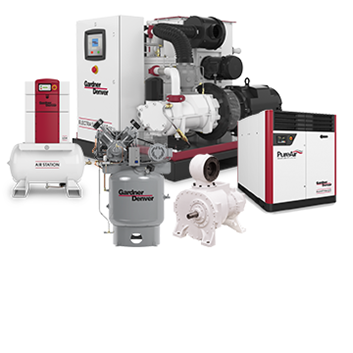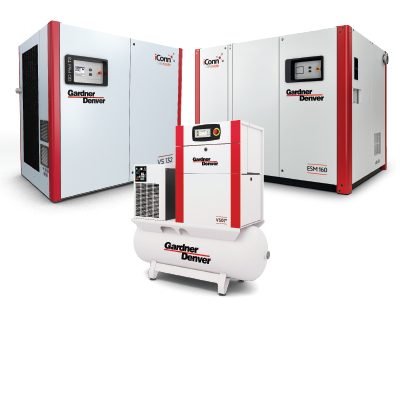Gardner Denver Rotary Screw Air Compressors Types
Two-stage Compressors
Two-stage lubricated rotaries compress air in two steps. Step or stage one takes atmospheric air and compresses it part way to the discharge pressure target. Step or stage two ingests the air at the inter-stage pressure and compresses it to the discharge pressure target. Compression in two stages improves efficiency, but adds cost and complexity given the additional rotors, iron and other componentry involved. Two-stage is generally offered in the higher HP ranges (100 to 500 HP) because the improved efficiencies result in larger dollar savings when air use is large.
Single-stage Compressors
Single stage versus two-stage, it is a relatively straightforward calculation to determine what the payback will be from the more efficient but more costly two-stage unit.
Remember that the energy cost of operating a compressor is the largest expense over time, so evaluation of a two-stage machine is certainly worth a look.
Lubricated
The lubricated rotary screw compressor has been the most popular technology for the majority of industrial plant air applications from 20 to 500 HP and from 80-175 PSIG. These compressors offer unmatched versatility and adaptability to various operational demands. Their efficient design ensures a continuous and reliable supply of compressed air, crucial for sustaining seamless production processes.
Gardner Denver Rotary Screw Air Compressors, stand out as a superior choice in performance for a variety of reasons. Our compressors are rigorously tested to ensure accurate performance and quality, guaranteeing performance numbers are accurate, easy-to-understand. Reach out to our experts for assistance in selecting the ideal compressor series tailored to your specific needs!
Contact Us.
 Global (EN)
Global (EN)


